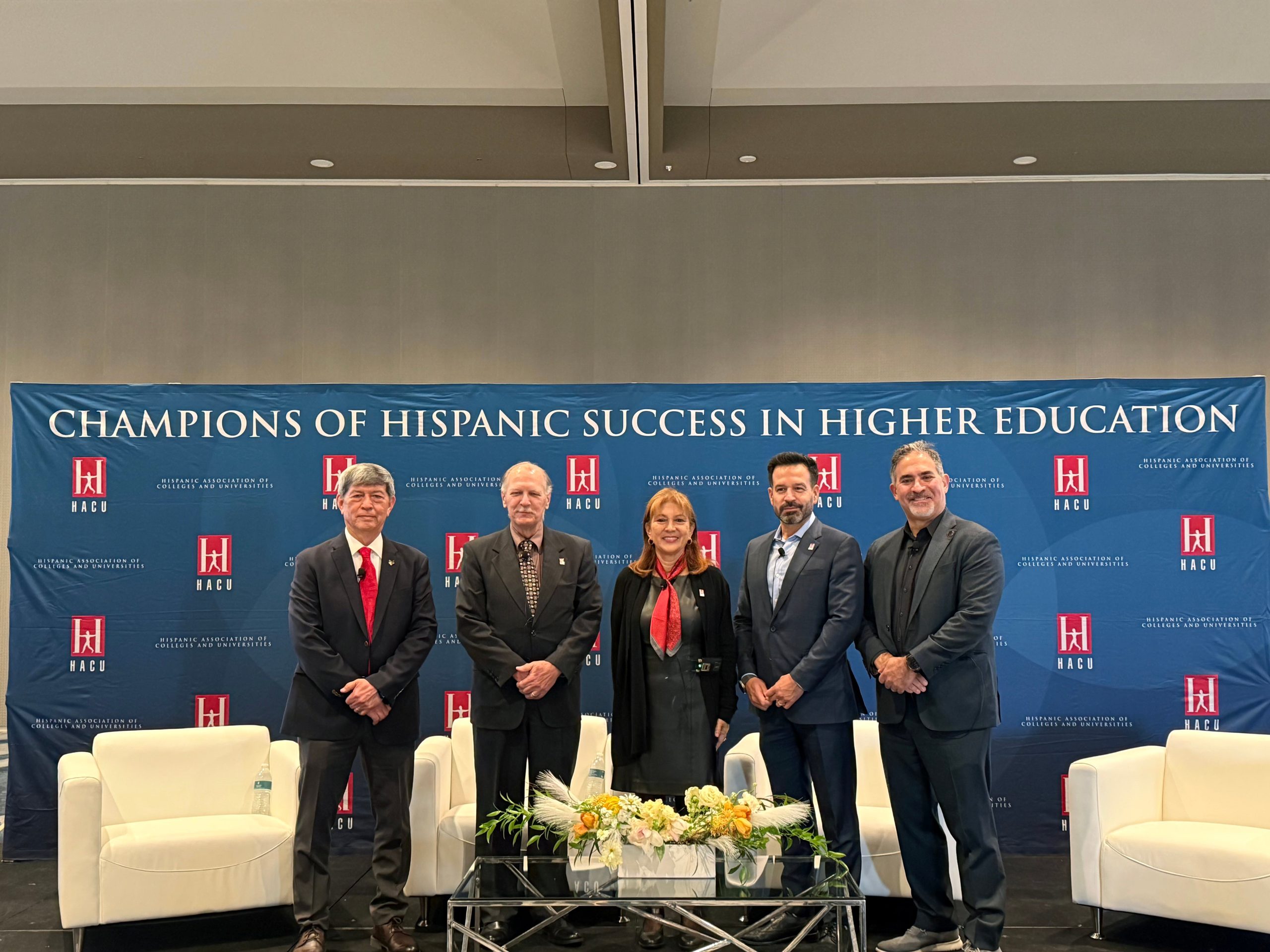At the 39th annual conference of the Hispanic Association of Colleges and Universities (HACU), University of Colorado Boulder Chancellor Justin Schwartz highlighted the vital role higher education institutions play in driving regional and global economic advancement. Participating in a panel titled “Higher Education as a Catalyst for Leadership, Innovation and Economic Prosperity,” Schwartz joined academic leaders from across the Americas to explore how universities can foster innovation, support democratic values, and contribute to sustainable development.
Schwartz emphasized that economic growth begins locally, rooted in student success and community engagement. He noted that CU Boulder’s core mission involves preparing learners to translate research into real-world applications, particularly in sustainability. With the university approaching its 150th anniversary in 2026, he underscored efforts to embed environmental responsibility throughout academic programs.
He spotlighted the recent establishment of the Buckley Center for Sustainability Education, which strengthens campus-wide initiatives in eco-conscious learning. Additionally, CU Boulder was selected to administer the new Carnegie Elective Classification for Sustainability, a national benchmark recognizing institutional commitment to environmental stewardship.
Other panelists shared their institutions’ contributions. José Fierro, president of Cerritos Community College District in California, discussed a nearly $600 million economic impact generated by the college and its energy efficiency programs. Fernando León García, rector of CETYS Universidad in Mexico, highlighted zero-waste operations and participation in international sustainability rankings. Emma Grace Hernández, president of UNIBE in Costa Rica, moderated the discussion and reinforced the importance of measurable outcomes in higher education.
The conversation turned to strategic alliances with industry, government, and nonprofit organizations. Schwartz cited collaborations with Ford Motor Company, the state of Colorado, and Front Range Community College as models of mission-driven partnerships that attract investment and accelerate innovation.
“Strong partnerships are built on shared goals, and relationships evolve when people see the value of working together,” Schwartz said, emphasizing long-term alignment over transactional engagements.
Fierro suggested universities should adopt performance metrics tied directly to economic impact, workforce readiness, graduation rates, and employment outcomes. Audience members raised questions about faculty involvement in workforce training and adapting to shifting political environments. Schwartz reaffirmed CU Boulder’s enduring commitment to serving students and communities regardless of external changes.
“Our mission hasn’t changed in 150 years,” he stated. “We’ll continue building relationships with those aligned with our goals of advancing our students.”
— news from University of Colorado Boulder
— News Original —
CU Boulder chancellor highlights higher education as economic driver at annual conference
Partnerships and serving as conveners for government and industry are key, said CU Boulder Chancellor Justin Schwartz and other leaders when recently discussing the role of universities as catalysts for economies. n nSchwartz joined international education leaders at the Hispanic Association of Colleges and Universities (HACU) 39th annual conference, participating in the international plenary session titled “Higher Education as a Catalyst for Leadership, Innovation and Economic Prosperity.” n nThe session brought together senior academic leaders from across the Americas to discuss how universities can serve as incubators for democratic values, economic development and sustainable innovation. Schwartz was joined by: n nJosé Fierro, PhD, president/superintendent, Cerritos Community College District in California n nFernando León García, EdD, rector, CETYS Universidad in Mexico n nEmma Grace Hernández, PhD, president, UNIBE of Costa Rica, and plenary session moderator n nCU Boulder is an associate member institution of HACU, which recognizes universities for a commitment to Hispanic student success and inclusive excellence. Schwartz emphasized the university’s mission-driven approach to sustainability and innovation, noting CU Boulder’s upcoming 150th anniversary in 2026. n n“So much starts with our students and our communities,” Schwartz said. “Economic development must be localized. Our greatest contribution is educating students who take their discoveries into companies and communities. Our students are passionate about living in a sustainable world, and we are looking at how we infuse sustainability across our curriculum.” n nSchwartz highlighted the recent launch of CU Boulder’s Buckley Center for Sustainability Education, which accelerates campuswide sustainability education. He also discussed how CU Boulder was recently chosen to serve as the administrative and operational host for the new Carnegie Elective Classification for Sustainability. n nPanelists discussed institutional strategies for driving sustainable development, including structural alignment with local priorities, forging industry partnerships and translating academic research into real-world solutions. Fierro shared Cerritos College’s nearly $600 million economic impact and energy-saving initiatives, while García emphasized CETYS Universidad’s zero-waste initiatives and participation in internationally recognized measures of success. n nPanelists explored strategies for building strategic partnerships with industry, government and nongovernmental organizations. Schwartz cited CU Boulder’s collaborations with Ford Motor Company, the state of Colorado and Front Range Community College as examples of mission-aligned partnerships that attract investment and drive innovation. n n“Strong partnerships are built on shared goals, and relationships evolve when people see the value of working together,” Schwartz said. n nFierro emphasized that universities can do a better job of having key performance indicators that are tied to economic impact, upward mobility, graduation and employment. n nAudience members asked how institutions can better engage faculty in workforce development and navigate shifting government landscapes. Schwartz reaffirmed CU Boulder’s long-standing mission to serve students and communities, regardless of political climate. n n“Our mission hasn’t changed in 150 years,” he said. “We’ll continue building relationships with those aligned with our goals of advancing our students.”
